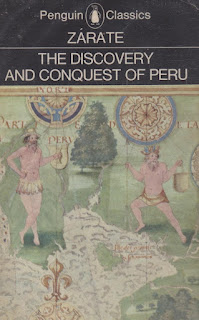
I have always loved revolutions. There is an inherent romance in every revolution and that is hard to beat. I loved the French and Russian revolutions (thanks to Carlyle and Reed!) but as I age, I am coming around to the view that the American revolution did more in terms of the philosophy it championed as well as the way it was executed. So, it is with a lot of interest that I picked up this book from a second hand book vendor this year and I was not disappointed.
I have read the history, the individual biographies of the main actors of the revolution and so I was intrigued by the premise of this book. The book is a collection of six essays focusing on the events in the revolutionary aftermath and try to analyze and put forth a view. Though all these events are knows, the author tries to bring a newer view point for discussion.
The book starts with the most famous episode of the post-revolutionary America - the Burr-Hamilton duel. Apart from the events of the day Hamilton died, the analysis focuses on the causes of the duel from the time of revolution and the way the 'parties' were formed. Ultimately, the duel cut short the life of a one and destroyed the career of the other.
However, the my favorite ones are the essays on Adams and Jefferson. As author of the Declaration of Independence, Jefferson stands out mostly through his writing and there is not much evidence of his speeches. That in itself says a lot about the man cautious enough to record his thoughts in a medium which can be corrected than interested in extemporaneous speeches. Adams is the exact opposite of it and a lot of vilification of him happened as he let his mouth run uncontrolled.
The essay on the collaboration between these two - which soon becomes Adams's collaboration with Abigail and Jefferson's with Madison - brings forth these differences and I somehow felt the author was being easy on Adams (may be because of my bias towards Jefferson) but along with the next essay on the friendship between Adams and Jefferson, these two essays are reason enough to get the book to read.
The arc of the story of American revolution cannot be told without its major players - Washington, Hamilton, Adams, Jefferson, Franklin - and the book focuses on these four alone to tell the story and analyze the reasons behind some of the decisions they made.
One of the interesting discussion point in the book is the way Adams and Jefferson looked at the French revolution unfolding across the Atlantic about the same time they were trying to hold the American republic together. Adams the pragmatist and Jefferson the dreamer , have completely opposite take on the blood being spilled in the guillotines in Paris but it makes for a good reading to understand the way the contemporary thought process on it. It is Jefferson who ends up apologizing for misreading the French revolution.
Overall, an interesting book - more on historical analysis than events - and a good read.
P.S. I didn't find it verbose - though there are some difficult paragraphs, I do not think they warrant a complete dissing of the book..

No comments:
Post a Comment